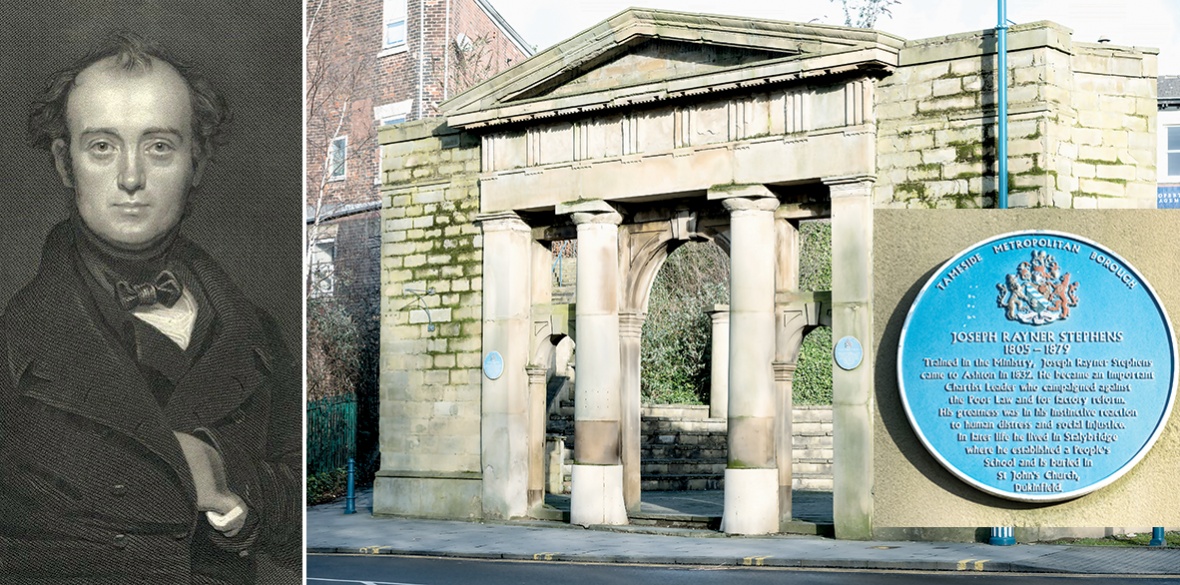This is the last article you can read this month
You can read more article this month
You can read more articles this month
Sorry your limit is up for this month
Reset on:
Please help support the Morning Star by subscribing here
WHEN it came to opposing the Poor Law, said the reverend, it was every man’s Christian duty “to have his firelock, his cutlass, his sword, his pair of pistols or his pike, and for every woman to have her pair of scissors, and for every child to have its paper of pins and its box of needles, and let the men with torch in one hand and a dagger in the other put to death any and all who attempt to sever man and wife.”
Amen.
Clearly, he agreed with his contemporary, the Newcastle trade unionist Robert Lowery, that “All should have guns, for the man that could shoot a Pheasant would shoot a Tyrant.” (It’s often forgotten that the right to bear arms was a left-wing cause for centuries before it became identified with the US right).
Of course, we’re used to meeting “red vicars” in Rebel Britannia, but the odd thing about the Reverend Joseph Rayner Stephens is that he was no revolutionary.
For a short while, the Reverend Stephens was one of the best-known Chartist agitators in the country — but he always insisted that he was not a Chartist. He might sound red to our modern ears, but historians generally class him as a Tory-Radical, that curious 19th-century phenomenon that’s easier to recognise than to define.
Richard Oastler, who Stephens worked closely with, is the best remembered of the Tory-Radical faction, a man who believed that the old, tradition-based Toryism was being replaced by modern, ultra-capitalist Conservatism, under which the ruthless pursuit of profit and nothing else would create a spiritually dead country, disfigured by awful poverty and constant bloodshed between the classes.
Stephens, future firebrand and political prisoner, was born in Edinburgh in 1805, the son of a Methodist minister. He himself was ordained in the 1820s, starting his ministry in Stockholm and ending up in Ashton under Lyne.
But he was effectively expelled from the Wesleyan movement in the 1830s because he refused to stop campaigning for disestablishmentarianism — the idea that England should not have an official church (as it did then and does now, in the embarrassingly comical form of the Church of England).
He was also in trouble over less obscure matters. This was the time of the new Poor Law, an anti-welfare measure brought in by a free-market-obsessed government, which often resulted in families being confined in workhouses, split up into separate sexes and generations.
Oastler called them “prisons for the poor,” and Stephens agreed. So did many of the local working-class Methodists, and seeing the expelled preacher working for factory reform as well, some seceded from official Methodism to establish “Stephensite” chapels. Although largely confined to one region, “Stephensism” was, for a time, quite a big deal, controlling at least 10 places of worship.
Arguing that by working against the cruelty of the factory system and the Poor Law, he was attempting to “apply God’s commandments” to life in a supposedly Christian society, Stephens became a famous and effective orator, addressing crowds, it is said, of up to 100,000 across northern England.
His link-up with the Chartists, whose aims were a democratic Parliament, was probably tactical rather than ideological; they had the organisation and the membership, which allowed him to speak to and write for a huge national audience.
His public speeches were characteristically untroubled by any thoughts of moderation, as he encouraged workers to break up meetings of the Poor Law administrators and to have revenge on local businesses which co-operated with the Poor Law, and advised his listeners that the government would take them a lot more seriously once they were all carrying weapons.
He was never going to get away with this for long, and at Christmas 1838, he was arrested for a “seditious speech” given at an illegal rally in Hyde on November 14.
Whether from lack of money or lack of modesty, or both, he chose to defend himself. The jury rapidly found him guilty — which he pretty obviously was — and he was sentenced to 18 months in prison, followed by five years of what we would today call probation.
Albeit more quietly and carefully than before his imprisonment and with fewer references to righteous bullets, the Reverend Stephens continued to campaign for workplace reforms, against child labour, in favour of trade unions and on behalf of the unemployed, until his death in 1879.
You can sign up for Mat Coward’s Rebel Britannia Substack at www.rebelbrit.substack.com for more strange strikes, peculiar protests, bizarre boycotts, unusual uprisings and different demos.







